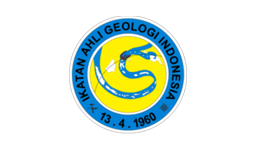Indonesia’s Competent Person
Who is the Competent Person of Indonesia?
- Adequate educational background
- For now the minimum education S1 (Bachelor) of Earth Science
- Relevant experience of at least 5 years
- CPI Reporting of Exploration Results
- CPI Resource Estimation
- CPI Reserve Estimation
- A CPI must have at least five years of experience in a field appropriate to the form of mineralization and the type of deposit that is being considered and in accordance with the activities being undertaken by the CPI
- Responsibility and Liability for the Report
- Members of professional organizations
- IAGI (Association of Indonesian Geologists)
- PERHAPI (Indonesian Mining Experts Association)
- A "Competent Person Indonesia" is a Member of Perhapi or IAGI registered as CPI Perhapi or IAGI based on the rules of each of these professional organizations
- Recording through verification process
Relevant Experience Definition
If the CPI prepares a report on the Results of Exploration, then the CPI experience shall be in accordance with the exploration field. If the CPI is conducting or supervising Mineral Resource estimation activities, the CPI experience shall be relevant to the estimation, review and evaluation of Mineral Resources. If the CPI is conducting or supervising the C / d ore estimation activities, the CPI experience shall be relevant to the estimation, review, evaluation, and economics of the extraction process from Ore Reserves.
- The key to qualification in CPI definition is the word "relevant". The determination of "relevant experience" can be difficult and determination based on common sense should still be examined. For example, in mineral resource estimates for urate-type gold mineralization, the experience of "high nugget", veined type mineralization such as tin veins, uranium, etc. may be relevant, otherwise experience in massive base metal deposits may be irrelevant.
- For a second example, to be stated as a CPI in the Ore Reserves Estimation for alluvial gold deposits, adequate experience (perhaps at least five years) is required in the evaluation and economical extraction of this type of mineralization. This is due to the typical gold characteristic of the alluvial system, the particle size of its typical porous sediments, and low grade. Experience with placer deposits containing minerals other than gold may not be relevant enough.
- The "relevant" keyword also means that a person does not necessarily require five years of experience in each type of reserve in order to act as a CPI if the person has relevant experience on other types of pebbles. For example, a (say) 20-year experience in Mineral Resources Estimation for different types of metal deposits associated with igneous rocks may not require specific experience on copper porphyry deposits for five years in order for that person to act as a CPI. Relevant experience in other types of deposits can be calculated as the required experience in relation to copper porphyry deposits.
- Additional experience other than the type of mineralization, a CPI responsible for the compilation of the Exploratory Results or Mineral Resources Estimation must have sufficient experience in the techniques of collecting samples and laboratory analysis relevant to the underlying consideration, in order to be aware of the issues that may affect the trust level of the data. Understanding of the mining and processing techniques to be used on these types of deposits may also be important.
- As a general reference, persons acting as CPI must be confident that they can deal with their peers and can demonstrate their competence in the field of commodities, types of deposits, and the situations at hand. If there is any doubt, the person should ask for another opinion from a more qualified colleague in knowledge and experience or he should withdraw as a CPI.
- Mineral Resources Estimation may be a team work (for example, involving one person or team that collects data, and another person or team preparing it estimation). Ore Reserves Estimation is very commonly as teamwork involving several technical disciplines. It is strongly recommended that clear division of responsibilities within a team, where each CPI and their contribution must be identified, and responsibilities agreed upon according to their respective contributions. If only one CPI signs the Mineral Resources or Ore Reserves documentation, the person is responsible and can be responsible for the entire document under the Code. It is essential in such a situation that the CPI accepts overall responsibility for an estimate of Mineral Resources or Ore Reserve and all supporting documents prepared, in whole or in part by others, and believes that the work of other contributors is acceptable.
- The complaints that arise in relation to the professional work of a CPI will deal with the rules and procedures of the discipline of the professional organization in which the CPI belongs.
- When a company with an overseas interest will report the results of an Exploration, Mineral Resources or Ore Reserves Estimation in Indonesia that prepared by a person who is not a Member of Perhapi or IAGI, the company shall designate a person or multiple CPIs to take responsibility for the Exploration Results, estimate of Mineral Resources or Ore Reserves. The CPI or some of the CPIs performing this activity must understand that they accept full responsibility in such estimates and supporting documents.
Code of Ethics
Just like doctors, lawyers, appraisers, accountants, notaries, and other professions; The CPI actually does 'practice' in actualizing its professionalism, as well as having an impact on the public. Thus, it must comply with the code of ethics issued by professional organizations where the CPI is sheltered.
Some Understanding Related Ethics
- Ethics are moral values or norms that serve as guidelines for a person or group in regulating their behavior professionally.
- The Code of Ethics is a collection of ethics designed to uphold the profession for the responsibility of the profession, society and God Almighty.
- Profession is a skill that requires in-depth training in a field of science, art or work, which is done continuously.
- Code of Conduct to Help Prevent Ethical Offenses.
- For the prevention of violations, morals must be supported by competence and the Code of Conduct.
- The basic principles of the Code:
- Protection of the public interest
- K3LH
- Transparency and accountability
- Conflict of interest
- Working according to competence
- Maintain reputation and professional integrity
- Fair business competition
- Compliance thdp. community values, laws and regulations
- Helping the community in law enforcement
- Help build a good profession practice







